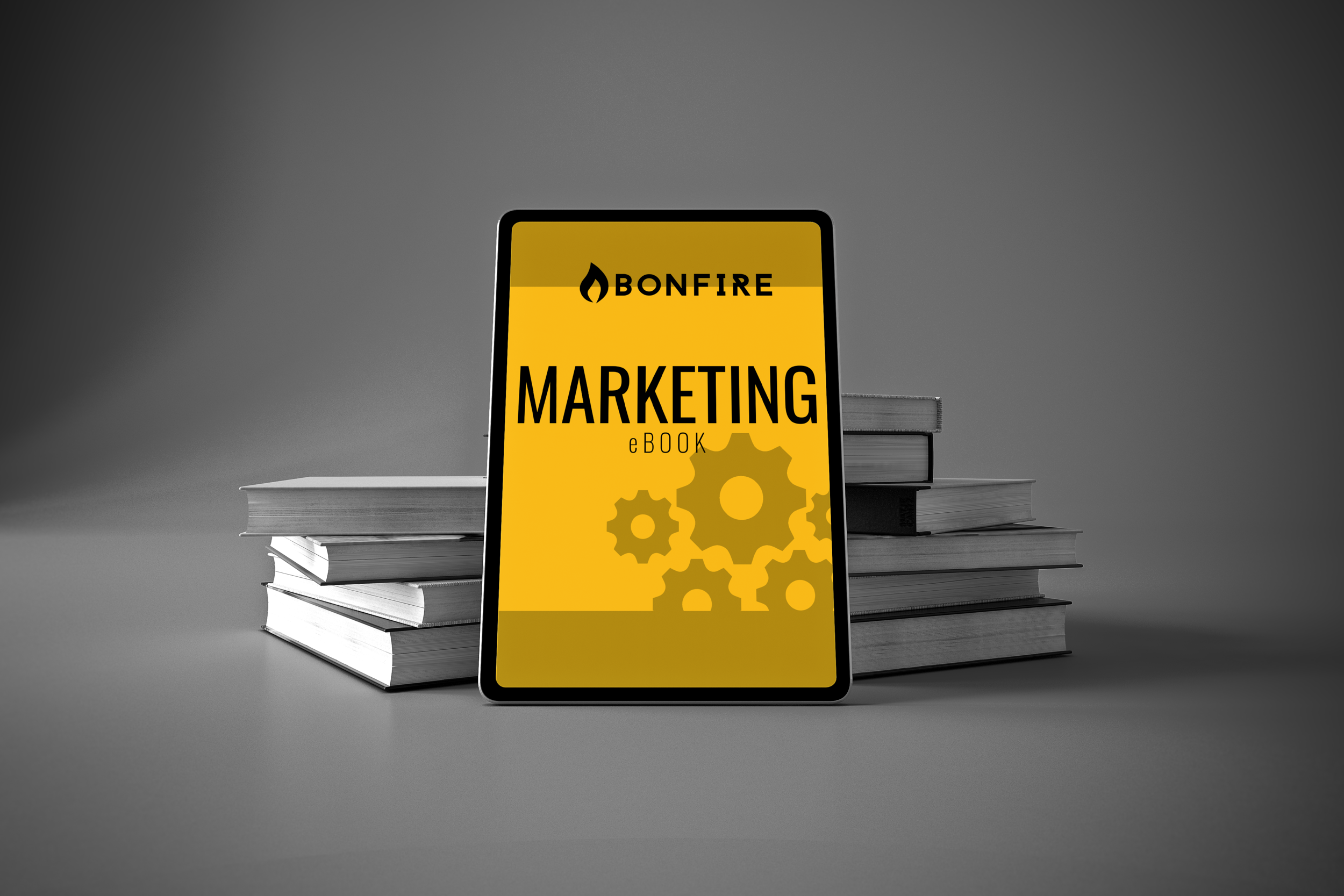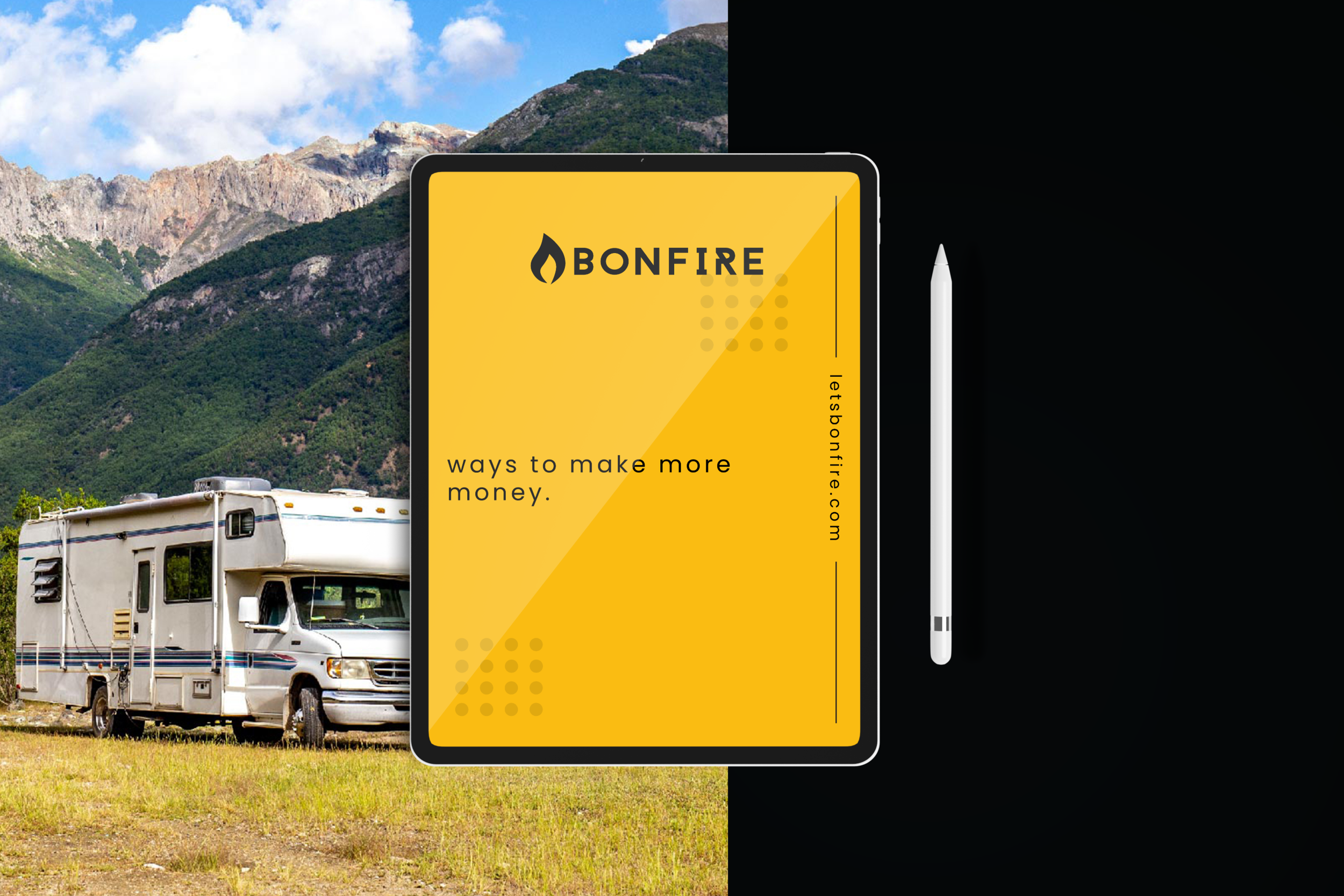With so many people working from home, instead of an office, we are starting to reevaluate what it truly means to live a happy life. 2020 has taught us a lot and one of the lessons that stands out most is going into an office doesn’t have to be the norm. With that mindset, it is getting easier and easier to not only dream but pursue a life outside of the corporate world.
RV Parks and Campground ownership is an oasis Americans, both young and old, are looking toward. Starting a campground or RV Park might seem easy, but, just like any successful business, you need a solid foundation. So, how do you start a campground and what do you need to know about starting an RV Park? Below we list 10 steps to follow when venturing out in the great unknown of campground ownership and management.
Pinpoint what kind of park you want to open.
There are two ways to start a campground: buy an already operational campground or start a new one. Before deciding, you need to pinpoint the location. It determines the amenities and options you can offer to campers looking to getaway. The weather and seasonality of each location will impact your profitability year-round. If it snows a lot in the winter, that could impact your winter revenue. However, if it is close to slopes, then this might not be a factor. When researching locations, also look to see the number of campgrounds in the area as well as permits needed in each location. Make sure to consider ALL environmental impacts. Florida might make perfect sense, being retirees spend a lot of time there. However, hurricanes and flooding in certain areas could have a HUGE impact on your park, so considerations like flood insurance have to be considered when pinpointing the perfect location. Don’t forget to look at the local market, too. Make sure there is enough traffic to sustain your business, take a look at the competition already in the area as well.Create a Business Plan.
Campgrounds and RV Parks might seem like a laid-back industry to some, but every successful business needs to have a fully thought-out business plan. A well-thought-out business plan will help you not only start but manage your campground over the first few years of operation. Additionally, lenders normally require a business plan to secure a loan. Most business plans follow this outline (sba.gov):Executive summary - A description of your business, why it will be successful, your mission statement, leadership team, location, and growth plans.
Company description - Detail what problem your campground is solving, your competitive advantages, and your strengths.
Market analysis - your target market as well as your competitors
Organization + management - Describing the legal setup of your company and team member’s strengths.
Service - Explaining in detail your service and describing why it is beneficial to your customers.
Marketing and sales - You will need to not only detail how you plan on marketing but also how much you plan on spending in the first year as well as return on ad spend (how much will be made from marketing). Click here to read more about marketing your campground.
Funding asks - Specific details about the funding you need and where each dollar will go.
Financial projections - Provide a prospective financial outlook for the next five years. Include forecasted income statements, balance sheets, cash flow statements, and capital expenditure budgets. For the first year, be even more specific and use quarterly — or even monthly — projections. Make sure to clearly explain your projections and match them to your funding requests.
Secure a loan if needed.
Depending on if you are buying a pre-existing campground or if you are starting a new one, loans look different. When purchasing an already existing RV Park or campground, you have to have a hefty down payment of 20-30%. There really are not any good ways around this. Why? Unlike buying a home, you are purchasing a business with 3 parts.Recreational Land
A Business
A Home
Although they are all joined physically, they are analyzed separately, so you need a little cash flow. A lot of new owners sell their homes and use the money made to pay for the down-payment. One thing to keep in mind, however, is that park owners will not hold their park while you sell your house. So it is a bit of a gamble. You can also consider using other assets for down payments as well.
If you are building from scratch, you will need to look into small business loans. For those with a hefty retirement fund, you could look into securing a 401K Small Business loan. These are a little more tricky, as a 401k makes it impossible to become a full-time employee of the campground as you have to keep working for the employer your 401k is through until the loan is paid off. However, the interest is very low. For those without a substantial 401k, small business loans will be needed.
Of course, you could also bring in investors such as friends, family or venture firms. If you choose to go down this route, make sure your business plan includes the percentage of the business you are willing to give as well as the time period you think it will take to pay them back.
Research the region.
From water supply to electricity, the region where you are starting your campground will play a huge part in finalizing not only your business plan but enable you to understand the permits and construction needed. Most regions have rules to regulate public use of water, you’ll need to check with your state about this. Usually, if you don't supply drinking water, then you don't need to provide waste removal facilities (septic, town sewer, dump station, and the like). If you want to avoid upfront costs, check whether you NEED to provide anything by law, or if you can start just with the basics, like portable toilets. You can always add waste removal and a water supply as the popularity of your campground grows.Get the permits.
Start by contacting the city planning board. They should know what department you need to approach (department of economic development, department of environmental services, or multiple departments). You also need to make sure to double-check local ordinances, guidelines, and zoning. There are probably permits you need for BOTH city and state. You do not want to wait until the last minute to secure your permits, as some take months.Build relationships with your community.
Make friends with local establishments in your area. From staffing to word of mouth and starting to get a feel for the region, you have to have a GREAT relationship with the community if you want your park to thrive. One way to leverage your community connections is through referrals. If they refer people to your park, they receive 10% of the total bill and vice versa. In order to increase the amount you make from other businesses (passive income), send follow-up emails after a guest books their stay with suggestions of local restaurants and attractions you have partnered with. You can also offer brochures and business cards at your office. Guests will appreciate the advice and your partners will love the uptick in business. This relationship will just lead to more customers for all businesses involved.Create a website and find software.
Websites are a no-brainer, but many don’t remember to leave room in their budget for this expense. First, you need to secure your domain, hopefully matching the name of your park. Domains range from $12 - 1,000. You will then need to host it somewhere, which costs around $100/yr. We recommend when coming up with a name for your park, also make sure the domain is available. You can check here. Then you need to build your website. Sites like Squarespace or Wix are pretty cost-effective at $240/yr. Make sure you have great images and feature the amenities to get people excited about booking your park. If you are not great with technology, make sure to leave room in your budget for a professional to handle your site. If using a platform like Squarespace or Wix, you will need to budget around $1,000-$2,500 for the setup. The next step is figuring out what management tool you will need to run your park.From allowing customers to easily book online, to making sure your finances are in order at the end of the year, the software you choose has a huge impact on the success of your campground. We, of course, recommend Bonfire. Bonfire focuses on providing you with the simplest features and functions to manage your reservation operations and provides core industry reporting so you save time and energy. You can take deposits to hold a site reservation and also allow your future guests to pay for their entire reservation. Not only that, but you can also charge for amenities like kayak rentals and firewood all from one place. Most online management tools cost around $150-$500/m.
Marketing.
We have written many articles on marketing for campgrounds and RV Parks. Marketing looks different for every park. The best way to promote your campground is by word of mouth. However, being a new campground or RV Park, you need to gain campers before this will start to increase. Many of the old-school ways of marketing such as TV spots, radio, or billboards are expensive and the range is small. So, we suggest using social sites to spread the word. Click here to read an article covering everything from setting up an ad account on Facebook and Instagram to showing your ads to the correct audiences.Hire a great staff.
Hiring the right staff, especially in the first years, will have a HUGE impact on your success. If you do not have much experience running campgrounds, hiring those who do can help you avoid costly mistakes. When thinking about hiring, you also need to consider if you will be providing housing on-site, which could open up the pool of people to include those who live in the community and surrounding areas. Make sure to run background checks on all staff. You can pick and choose what you will find acceptable, but make sure to double-check that past convictions would not come back to haunt you if they got out.Have fun.
Remember, the point of you leaving the corporate world is to have more fun, be with nature and hopefully make some money while doing it. If you start to lose sight of why this makes you happy, then your business will not be as successful.
Many dream of leaving the corporate world behind. If there is one thing 2020 taught us is that corporate office jobs don’t have to be a reality if you don’t want them to be. However, just like any business, starting a campground or RV Park is a lot of work. If you cut corners or skip steps, it will fail. However, if the wild is calling you, with time and effort, you just might end up changing your life for the better.
If you have any questions about starting your own RV Park or campground, we would love to talk! We have seen a thing or two and learned a thing or two over the last 10 years in this business. Just send us an email at howdy@letsbonfire.com. Happy camping, everyone.






